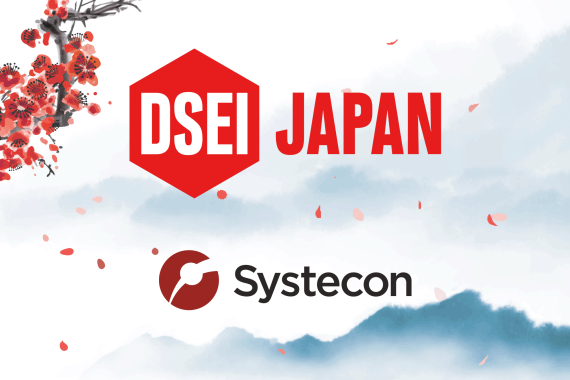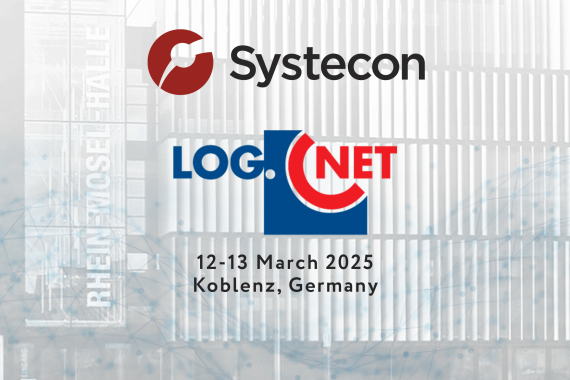Performance Based Logistics
During the last decade, analysis related to Performance-Based Logistics (PBL) has become a major application area for Opus Suite. Not only because PBL programs have become an increasingly common product support strategy for our customers, but also because it is an area where the kind of analytical decision support provided by Opus Suite can make a tremendous impact. Ultimately, it can mean the difference between success and failure. Performance-Based Logistics contracts are also complex, requiring advanced decision models and analyses to optimize system performance, which has meant that Systecon is frequently engaged to assist with modeling and analysis, providing quality assurance and method development for PBL programs.
PBL engagements are usually large undertakings that run for 5-20 years, representing significant commitments for both the end user of the technical systems and the supplier of the support services. First, it is crucial to establish a PBL contract that provides an appropriate framework and direction for collaboration throughout the entire period. Secondly, it is essential to develop and optimize a cost-effective support solution while continuously improving its ability to meet performance targets at an acceptable cost.
During the design and negotiation of Performance-Based Logistics contracts, both parties must analyze and understand all central aspects of the arrangement, estimate costs and risks, and evaluate the consequences of different alternatives. Are the performance targets appropriate and will they ensure successful operation as planned? Are they realistic or unnecessarily high/low? What investments in equipment, personnel, and spares are required to meet the targets? Is the incentive package relevant and fair, and does it provide proper direction and motivation?
Once the PBL contract is in place, the supplier faces numerous key decisions regarding supply chain management and implementation. What is the optimal support organization? What facilities, equipment, personnel, spares, and other resources are needed? How do these match with current resources and their allocation?
All above are highly relevant questions where Opus Suite and Systecon provide answers.Further information on typical analysis areas follows below.
What is Performance-Based Logistics?
Performance-Based Logistics (PBL) is an outcome-focused approach to managing military and defense logistics, shifting from traditional transaction-based procurement to a model where suppliers are incentivized based on performance metrics. Instead of purchasing spare parts, maintenance, or repair services individually, military organizations establish long-term contracts with suppliers to deliver reliable and cost-effective sustainment solutions. The goal of PBL is to ensure that mission-critical assets remain operational, enhancing readiness, efficiency, and cost-effectiveness across the supply chain.
In a PBL contract, vendors are measured and rewarded based on key performance indicators (KPIs) such as system availability, reliability, cost per flight hour, or mission readiness. This approach incentivizes suppliers to improve asset lifespan, optimize maintenance schedules, and invest in innovative sustainment solutions to minimize downtime and reduce lifecycle costs.
How Performance-Based Logistics Works
PBL contracts are structured around predefined performance outcomes rather than individual transactions. The key components of a successful PBL strategy include:
1. Defining Performance Outcomes – Instead of focusing on purchasing spare parts or services, PBL contracts define desired performance goals, such as fleet availability, reduced failure rates, or optimized maintenance schedules.
2. Long-Term Agreements with Suppliers – Military organizations leverage Long-Term Agreements (LTAs) with suppliers to enhance program performance within the defense acquisition system. These multi-year contracts ensure sustained support for critical assets, such as aircraft, vehicles, and weapon systems, optimizing weapon system availability by securing reliable maintenance, parts supply, and lifecycle management.
3. Use of Data and Predictive Analytics – Advanced data analytics and predictive maintenance play a crucial role in PBL implementation. Suppliers use real-time data and historical trends to optimize inventory management, repair cycles, and logistics operations.
4. Supply Chain Optimization – PBL encourages integrated logistics planning, where suppliers manage spare parts inventory, distribution, and maintenance to minimize delays and improve efficiency.
5. Incentive-Driven Supplier Accountability – Vendors are financially rewarded for meeting or exceeding performance targets but may face penalties if they fail to achieve contractual benchmarks.
By shifting the focus from transactions to outcomes, PBL enhances operational efficiency, ensuring that military equipment remains combat-ready with minimal logistical disruptions.
Challenges and Benefits of Implementing a PBL Strategy
Challenges of PBL Implementation
1. Complex Contract Structuring – Defining clear performance metrics and
establishing accountability in PBL contracts can be challenging, requiring detailed planning and data-driven forecasting.
2. Initial Investment & Transition Costs – Shifting from traditional sustainment models to PBL may require significant upfront investment in data analytics, supplier integration, and IT infrastructure.
3. Data Sharing & Transparency – Effective PBL execution relies on real-time data exchange between military organizations and suppliers, which can raise concerns about security, access, and interoperability.
4. Vendor Performance Risk – If suppliers fail to meet performance objectives, military organizations may experience delays in sustainment operations, affecting mission readiness.
Benefits of PBL Implementation
● Increased Equipment Availability – By optimizing maintenance cycles and
reducing downtime, PBL enhances fleet and asset readiness.
● Lower Lifecycle Costs – The incentive-based model encourages suppliers to
improve efficiency, reducing the total cost of ownership (TCO) for military assets.
● Enhanced Supply Chain Efficiency – With predictive analytics and optimized
inventory management, PBL minimizes waste, delays, and excess stockpiling.
● Stronger Industry Partnerships – Long-term PBL contracts foster collaboration between defense agencies and private sector suppliers, driving innovation and continuous improvement.
By implementing PBL, military organizations can transform sustainment operations to support fielded systems more effectively, ensuring mission success, cost efficiency, and long-term asset reliability. PBL strategies also lead to increased system availability, enabling military forces to maintain operational readiness and extend the lifespan of critical defense assets in today’s complex defense landscape.
Optimize Performance with Opus Suite
Opus Suite is a powerful tool that enhances PBL by optimizing lifecycle management, maintenance planning, and sustainment strategies. It enables defense organizations to maximize weapon system availability while minimizing costs by analyzing operational scenarios, spare parts distribution, and maintenance scheduling. Integrated within the defense acquisition system, Opus Suite supports data-driven decision-making, improving program performance and ensuring mission readiness through predictive analytics and simulation.
Opus Suite Application Areas
Opus Suite can be used during the design and negotiations of the PBL-contract to, for
example:
● Select/agree on the most suitable contractual metrics (measurement parameters) to ensure that
○ the PBL-contract give proper direction towards operational goals
○ selected metrics can be measured and verified in an unambiguous manner which gives a fair and appropriate assessment of supplier performance
○ selected metrics give enough control for the operator and at the same time enough degrees of freedom for the supplier to be cost effective
● Negotiate the target levels for the selected metrics to ensure proper balance between the need to reach operational goals against the risk of unnecessarily driving up maintenance cost
● Establish follow-up intervals and procedures so that the operator gets feedback and control and the supplier a relevant framework and impetus to monitor, manage, respond and improve as needed.
● Define and evaluate/negotiate incentive models (rewards or penalties) that are well-defined, relevant and rational
● Estimating the cost of meeting certain performance targets by optimizing/estimating the facilities, equipment, personnel, spares and other resources needed.
Once the contract has been established, Opus Suite is an ideal tool for the supplier in the efforts to establish, maintain and trim the support organization so that target performance can be reached affordably. This can include:
● Optimize the maintenance concept
● Optimize the investment in facilities, equipment and other resources according to predicted maintenance volumes from scheduled and unscheduled maintenance
● Optimize assortment and allocation of spare parts Determine what personnel is needed where and when to ensure cost effective
maintenance and support
● Identify cost drivers, bottle necks and improvement areas to gradually improve financial margins as well as the ability to meet targets
While the parties in a PBL agreement may have partly different perspectives and objectives, openness and transparency regarding priorities, issues, cost driving factors, etc are often cited as contributing factors in successful PBL applications. In this context, Opus Suite is often used by both parties as a collaboration platform, providing a joint and neutral perspective on different alternatives and their pros and cons.
Through modeling, simulation, optimization, and cost analysis, Opus Suite enables organizations to quickly analyze scenarios, evaluate alternatives, and predict consequences in both the short and long term, ultimately improving total system availability. For organizations with limited in-house expertise in performance-based logistics (PBL) or in applying Opus Suite for product support arrangements, Systecon brings over 20 years of experience in managing performance-based contracts across various sectors.
We provide operators, end-users, and support service providers with decision support and method development to ensure effective, data-driven strategies for performance-based product support.

Find out more about the decision support Opus Suite can provide to your organization.



